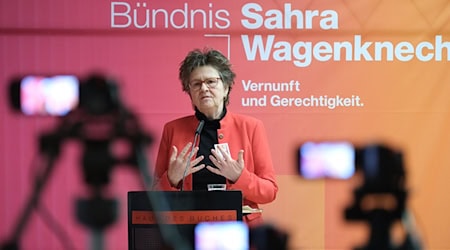The CDU wants to pay BAföG to company founders in eastern Germany - as a kind of pilot project for Germany to support newcomers to self-employment. This emerges from a paper published by the CDU a few days before the Bundestag elections and made available to the German Press Agency. It is entitled "For a new start in the East". The impetus for this came from the party's five East German regional associations. It states that a financial subsidy in the form of BAföG should be created as an unbureaucratic instrument for founders.
In addition, founders are to be exempt from state reporting and documentation obligations for the first three years after their launch. According to the CDU, application and approval procedures will be simplified.
"Glass ceiling" for SMEs should be removed
The paper focuses on SMEs in eastern Germany. It calls on the EU Commission to no longer tie the classification of small and medium-sized enterprises (SMEs), and therefore their funding, to a maximum of 250 employees.
"Many East German companies that were founded after 1990 have now reached this glass ceiling. Raising this threshold is a suitable, important and, above all, fast-acting instrument that can trigger a strong development boost for the entire East German economy without great effort," the paper states.
Double challenge in the East
In the paper, the CDU acknowledges the efforts made by East Germans since reunification - in many areas, equal living conditions have now been achieved between West and East. However, East Germany faces a double challenge: to further reduce its structural weakness and at the same time to master the structural change caused by digitalization and ecological challenges. This requires increased investment. It is about competitive jobs and good wages.
In the paper, the CDU commits to promoting the semiconductor industry and to phasing out coal by 2028 - and further support for structural change in the affected regions. It advocates an "open-technology" energy policy and the even distribution of reserve power plants in Germany to ensure energy security. Co2 reduction must be designed in such a way "that the value creation and competitiveness of eastern German industrial locations are maintained in the future". The steel and chemical industries are mentioned in this context.
Copyright 2025, dpa (www.dpa.de). All rights reserved










